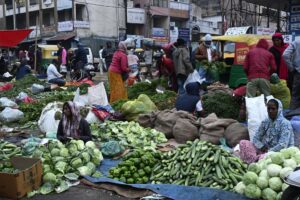Unlocking the Benefits: Why Circular Economy is the Key to Sustainable Development
The world is facing an unprecedented environmental crisis, and the need for sustainable development has become more critical than ever. Circular economy is an economic model that aims to preserve natural resources, reduce waste, and create economic and environmental benefits. In this article, we will discuss the importance and benefits of circular economy. What is…




